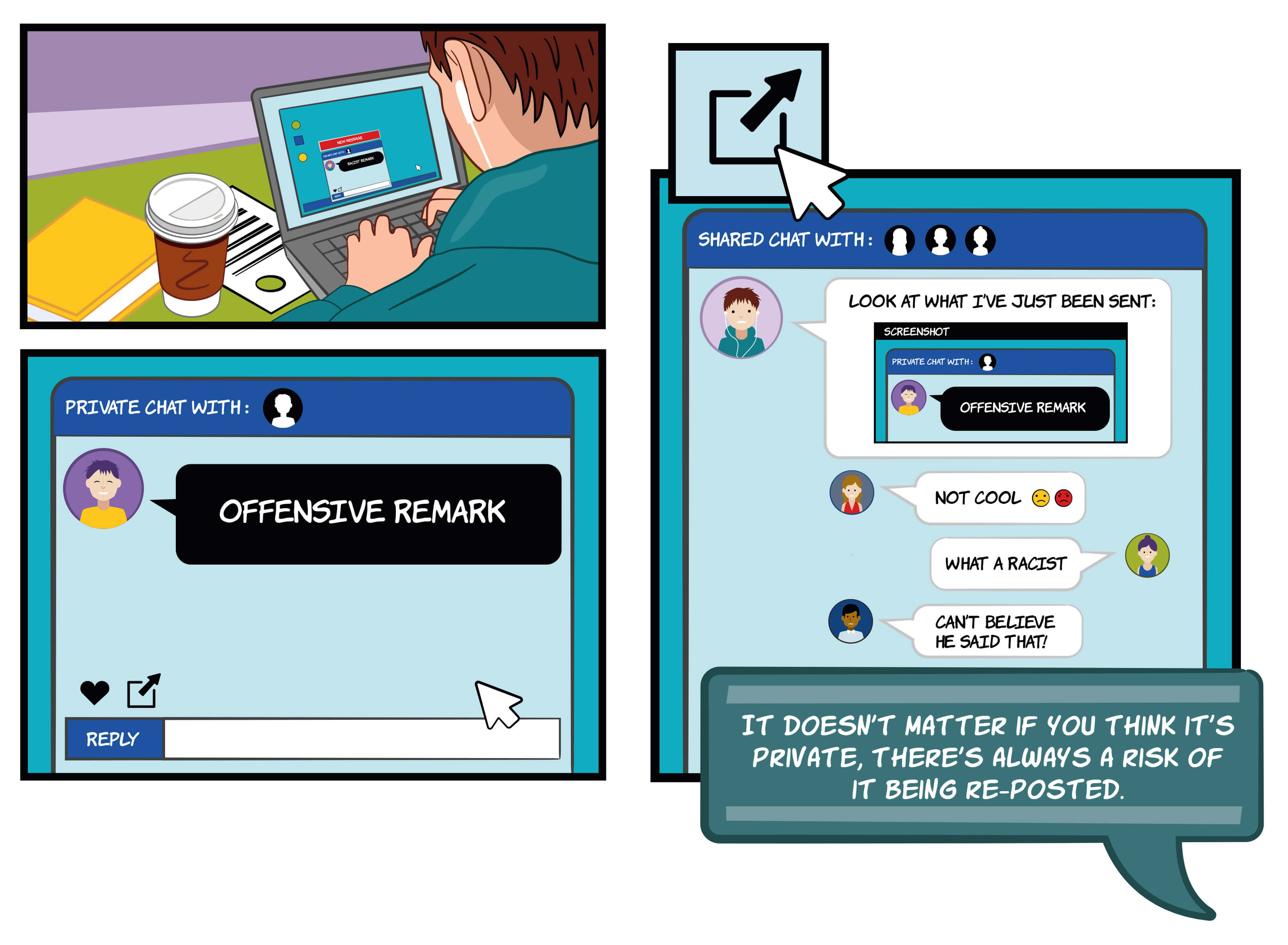Even within the context of a private message or group chat, the content we share and the comments we make can be considered offensive to others, even if they don’t say so at the time. For instance, sharing a sexist image or sending a throwaway homophobic comment can make others feel uncomfortable in online environments where they should feel safe. A person can be made to feel uncomfortable by sexist, racist or homophobic comments, but may feel unable to voice their discomfort, especially in a group setting, as they may feel unsupported or outnumbered. They may also feel unable to leave the group chat or unfollow the page, as this may cause others in the group to confront them about it, which forces them to have a conversation which they may not feel comfortable having. A person upset by the content shared within an online group may want to avoid any confrontation with or cause offense to other group members, and so they choose to stay silent.
The best course of action is to always think before you send. If what you are saying or sharing would be inappropriate to publicly post on the University website, then the content is inappropriate to share. Even seemingly positive responses, such as likes, comments or shares, could well be a result of the social pressure to conform, as someone may feel obligated to interact with the content in order to ‘fit in’ with the rest of the group, even if they may disagree with it on some level. It is important to note that in the event that a case of online harassment is subject to investigation by the University, or by the police, liking something offensive or responding to it with a positive emoji might get you into trouble, if you are seen as participating in the abuse.

If you are in a group in which this type of content is shared, we hope you’ll feel able to voice your disapproval, and perhaps even leave the group if nothing improves. There may be lots of people in a group that are uncomfortable with inappropriate content being posted, so don’t be afraid to speak up. If you feel that the content should be taken down, report the post to the administration team of the social media platform and let your University know if you think this is relevant. You can find more information about reporting content on Facebook, Instagram and Snapchat on this page.
If the misuse is relevant to the University because it involves a student or member of staff either as perpetrator or as victim, the misuse can be reported directly to the University. It is important to keep a record of the misuse to show as evidence to the University. You can find more information about recording online abuse here.